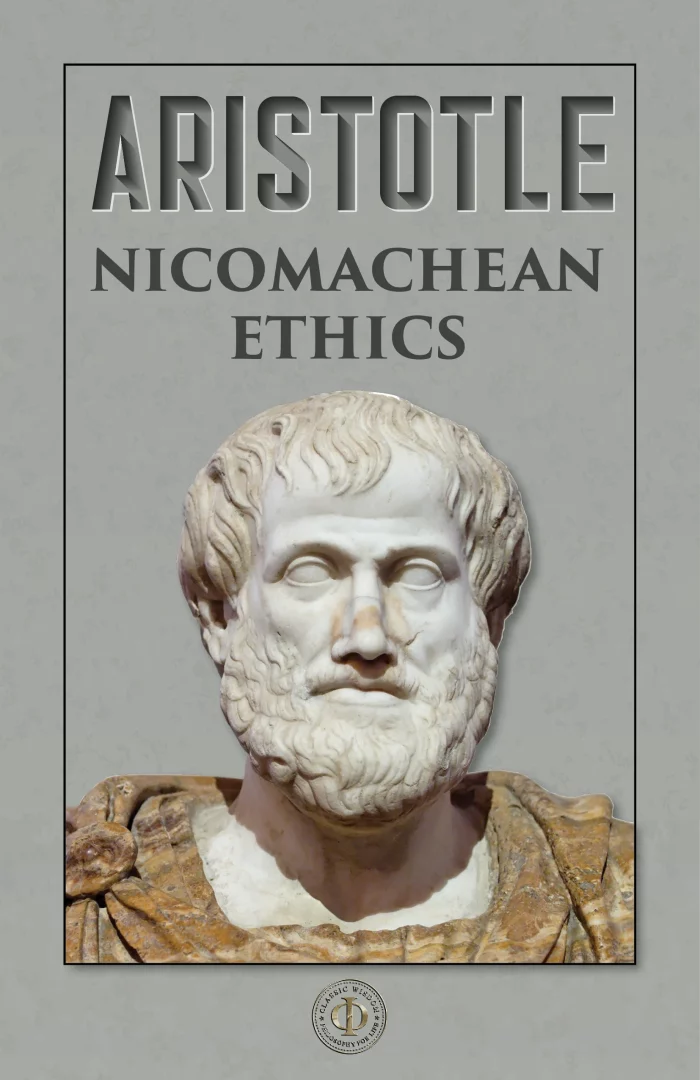Table of Contents
The Blueprint for the Good Life
Few philosophical works have had as enduring a legacy as Aristotle’s Nicomachean Ethics. Named for his son Nicomachus, this collection of ten books is less a manual than a systematic reflection on the nature of happiness (eudaimonia) and human flourishing. Aristotle doesn’t ask what we should do in rare moral crises, but rather: How should one live a good life every day?
With grounded practicality and philosophical precision, Nicomachean Ethics charts a course from raw potential to noble excellence. It remains foundational in virtue ethics and offers timeless insight for anyone interested in character, purpose, and meaning.
Core Themes: Virtue, Reason, and Flourishing
Eudaimonia: Happiness as Flourishing, Not Pleasure
At the heart of Aristotle’s ethical system is eudaimonia, often translated as “happiness” but more accurately rendered as “flourishing” or “living well.” For Aristotle, happiness is not a feeling but an activity of the soul in accordance with virtue over a complete life.
Unlike the modern pursuit of pleasure or comfort, Aristotle’s concept is dynamic, holistic, and rooted in fulfilling our human nature as rational and social beings.
Virtue as a Mean Between Extremes
Aristotle’s famous doctrine of the “Golden Mean” defines virtue as a midpoint between two vices: excess and deficiency. Courage, for example, lies between recklessness and cowardice. Generosity lies between wastefulness and stinginess.
This emphasis on contextual moderation makes Aristotle’s ethics flexible and deeply human—it requires phronesis, or practical wisdom, not rigid rules.
The Role of Reason and Habit
Virtue is not innate but cultivated through habit and reason. We become just by doing just acts. For Aristotle, ethics is intimately tied to psychology and pedagogy: a virtuous person is not only someone who knows the good but also takes pleasure in doing it.
This ties into his teleological view of nature—every being has a purpose, and ours is to use reason well.
Friendship and the Social Nature of Ethics
Books VIII and IX provide one of the most profound treatments of friendship in Western philosophy. Aristotle identifies three kinds: friendships of utility, pleasure, and virtue. The last—built on mutual admiration of character—is the highest form.
Friendship is not peripheral to ethics; it is integral to the good life, grounding personal development in community.
Contemplation and the Highest Good
In the final book, Aristotle controversially suggests that the life of contemplation (theoria)—not ethical action—is the highest form of happiness. While this may seem to pivot away from the rest of the work, it reflects Aristotle’s hierarchy of soul-functions, placing divine-like rationality at the pinnacle.
Influence and Legacy
Nicomachean Ethics is the cornerstone of virtue ethics, a tradition recently revived as an alternative to deontology and consequentialism. It has profoundly shaped Christian theology (especially Thomas Aquinas), Islamic philosophy, and contemporary moral psychology.
Aristotle’s ethics are teleological, character-based, and practical, offering a unified account of how to align human nature with moral excellence. Unlike moral theories that fixate on singular acts or outcomes, Aristotle’s system is developmental, asking: What kind of person are you becoming?
Strengths and Limitations
Strengths:
- Psychological Realism: Ethics as habit formation makes Aristotle’s system compatible with real human growth.
- Holistic Approach: Integrates personal character, social bonds, and rational purpose.
- Lasting Relevance: Speaks to modern debates in education, leadership, and moral development.
Limitations:
- Elitism: Aristotle’s ideal life presumes leisure and education not available to all.
- Lack of Universality: The contextual nature of the “Golden Mean” can be hard to apply across cultures or time periods.
- Contemplative Pivot: The ending emphasis on contemplation may feel disconnected from the practical, civic virtues extolled earlier.
Who Should Read It?
- Students of ethics, moral psychology, and classical philosophy
- Anyone interested in character development or virtue ethics
- Leaders, educators, and mentors shaping moral character
- Readers curious about the philosophical roots of flourishing and purpose
TL;DR
Nicomachean Ethics does not offer rules—it offers direction. Aristotle teaches us that happiness isn’t something we feel, but something we practice. Flourishing comes from disciplined growth, ethical friendships, and aligning one’s life with reason and virtue.
This is philosophy in its most constructive sense: not abstract theorizing but a guide for becoming your best self over a lifetime.

Leave a Reply